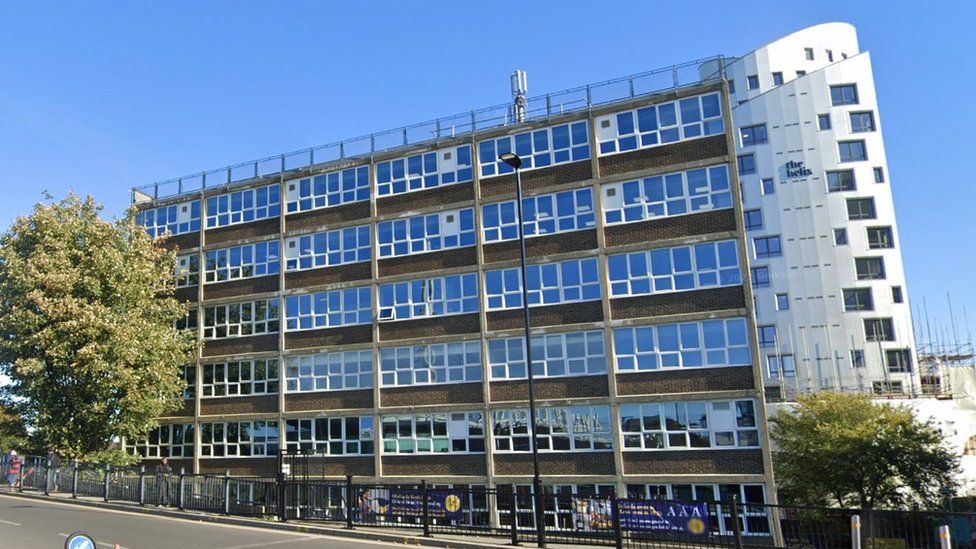-
Published2 minutes ago
 Image source, Google
Image source, GoogleA Muslim student at a London school has lost a High Court challenge against its ban on prayer rituals.
Michaela School in Brent was taken to court by the pupil over a policy said to amount to a prayer ban.
The student at the school, founded by head teacher Katharine Birbalsingh, said the policy was discriminatory.
The secondary school previously told the High Court that allowing prayer rituals risked “undermining inclusion” between pupils.
About half the school’s roughly 700 pupils are Muslim, the court previously heard.
‘Victory for all schools’
Mr Justice Linden rejected the student’s claim in a judgment delivered on Tuesday morning.
The case will be seen as upholding the right of non-religious schools to make their own decision about whether to set aside time and space for pupils to pray.
Ms Birbalsingh said in a statement on X, formerly Twitter, that the ruling was a “victory for all schools”.
“A school should be free to do what is right for the pupils it serves,” she said.
“Schools should not be forced by one child and her mother to change its approach simply because they have decided they don’t like something at the school.”
‘She knew the school is secular’
In the legal action against the north-west London school’s governing body, the Michaela Community Schools Trust, the student alleged that the ban on prayer rituals breached her right to freedom of religion.
The pupil, who cannot be named for legal reasons, told the court the rule had “fundamentally changed” how she felt “about being a Muslim in this country”.
The school argued its prayer policy was justified after it faced death and bomb threats linked to religious observance on site.
In an 83-page judgment dismissing the student’s case, Mr Justice Linden said: “The claimant at the very least impliedly accepted, when she enrolled at the school, that she would be subject to restrictions on her ability to manifest her religion.
“She knew that the school is secular and her own evidence is that her mother wished her to go there because it was known to be strict.
“She herself says that, long before the prayer ritual policy was introduced, she and her friends believed that prayer was not permitted at school and she therefore made up for missed prayers when she got home.”
The judge upheld the student’s challenge to a decision to temporarily exclude her from the school.

Listen to the best of BBC Radio London on Sounds and follow BBC London on Facebook, X and Instagram. Send your story ideas to hellobbclondon@bbc.co.uk

